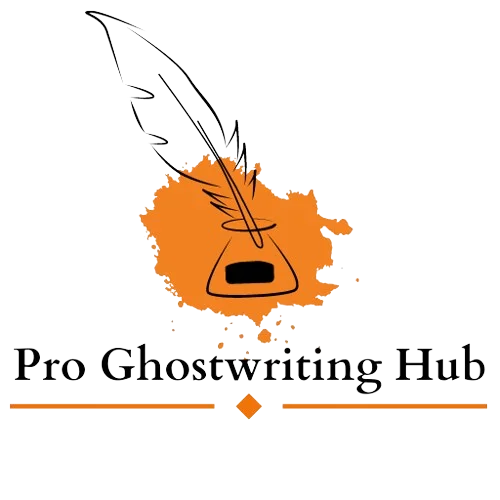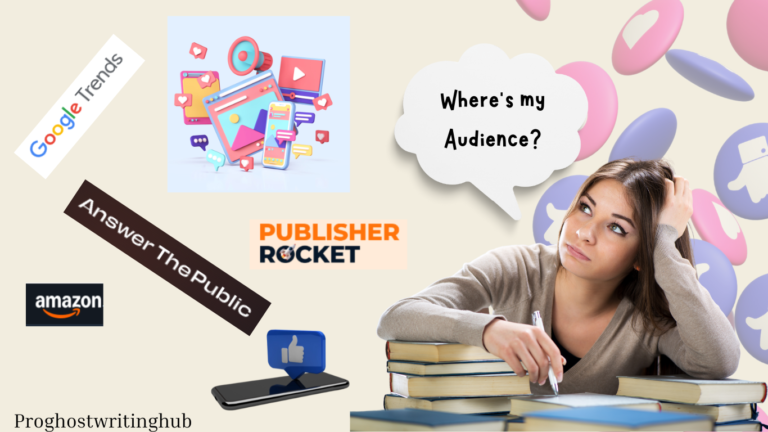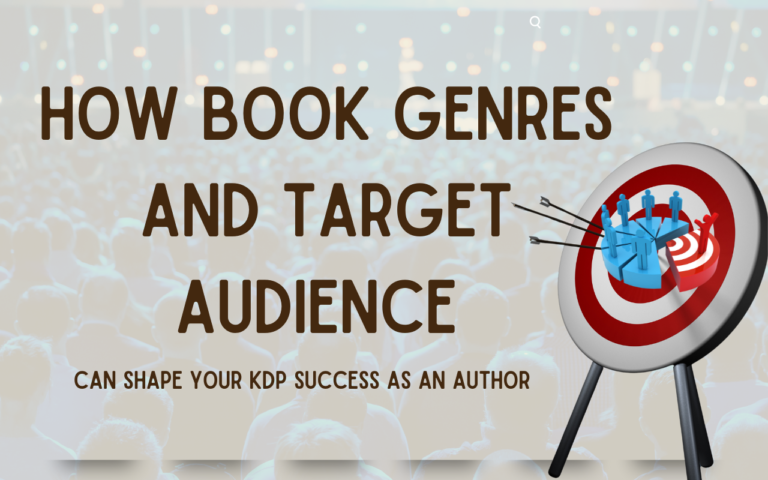7 Proven Strategies to Sell Books as an Author
You’ve put in the effort, faced the challenges, and now your book is no longer a dream—it’s a living, breathing accomplishment. Each page reflects your passion, your journey, and the commitment that brought you here.
No doubt, becoming an author and sell books is no easy feat. It’s a journey that requires dedication, hard work, and a deep passion for storytelling. From the first spark of an idea to the final draft, every step is a testament to your commitment. But beyond the words on the page, it’s the process—the countless hours spent perfecting your manuscript, overcoming self-doubt, and pushing through challenges—that truly defines your success as an author. Your book is not just a finished product; it’s the culmination of your efforts, your experiences, and your growth.
That’s why, I must say, achieving your dream of becoming an author is a significant milestone. After putting in the hard work to convert your idea into a finished book, the next challenge arises “It’s still on the shelf. People just aren’t buying it. Or they aren’t buying it as they should“.
Tips to Help You Sell More Volumes as an Author
As an author, you don’t want your friends and family to be the only ones who read your book. You want it to reach as many eyes as possible for different reasons. You might want as many people to see the message your book carries, or you want to make as much money from the book as possible.
Whatever it is, your goals are valid.
So, for this, you have to sell first.
Selling your book isn’t just about setting a price and listing it online—it’s about creating visibility and building momentum. Without the right strategies in place, even the best-written book can get lost in the sea of new releases.
To help you overcome this challenge and give your book the attention it deserves, here are 7 best tips to sell books effectively.
1. Build an author platform
An author platform is basically everything and anything you create or do to increase your reach and connect you to potential readers. This is the foundation of your book’s success. It includes your website, social media profiles, blog, email list, and any other online presence that allows you to engage with readers.
Building this platform is not a one-time task; it’s an ongoing effort to establish your brand and build trust with your audience. This is marketing itself, except now you’re marketing yourself as an author. It’s raising awareness and spreading the word about you and your book so that people might give your book a chance. By consistently sharing valuable content, engaging with your followers, and providing updates on your work, you create a loyal fan base that will not only buy your book but also help spread the word to others. The more visible you are, the more likely readers are to discover and connect with you and simultaneously, you’ll sell books.
Summary of different platforms
you can use to build your author presence.
Just in case this interests you and you’re wondering how you can build your platform, we have a step-by-step guide to building an author platform right here.
2. Join a community of authors
Having a community of authors is important in your growth as an author and a marketer of your book. You’ll have access to information, tools, resources, and support like you’ve never seen before.
Being part of a community of authors is crucial for your growth as both a writer and a marketer. It opens up access to invaluable information, tools, resources, and support that can propel you forward on your journey. By connecting with others who have walked the same path and come out successful, you can gain insights and strategies that will help you level up. Equally important, you’ll find fellow authors who are at a similar stage in their careers, offering the opportunity to support each other along the way.
Within such communities, you’ll meet authors with varying levels of reach and expertise. Some may have connections that can introduce you to key industry players, while others may offer guidance on securing larger contracts or breaking through to a wider audience. The possibilities for collaboration, learning, and growth are limitless.
However, simply being part of a community isn’t enough. To reap the full benefits, you must be an active participant, not just a spectator. Engage with others, share your experiences, and make sure your presence is felt. When opportunities arise, you want other authors to think of you. Building relationships based on mutual support will open doors and create opportunities for you that might otherwise be missed.
Recommended Author Communities

3. Find a community of readers in your genre to sell books
As much as you’re trying to be part of a group of authors, make sure you spare some time for readers as well. Practically all authors are readers, but not all readers are authors. There are groups of people who spend time reading and consuming new books, waiting for the next best thing.
Those people are your market.
They’re the ones you’re marketing to, and they’re who you want to make sales to.
When you find these communities, carefully observe what they do and say. See what they like and dislike. Interact with them a little bit, and if possible, get one or two of them to read and review your book. Doing this will allow you to know more about your target audience and how to reach them in a simpler way. If your book checks their boxes, they will point everyone in the community in your direction.
Where to Find Reader Communities

4. Make a professional book cover
Everyone says you shouldn’t judge a book by its cover, but nobody actually listens to that. People judge everything by their covers. Especially books.
When you have your draft ready, you should make sure you get a very creative and professional cover to go with it. The cover presents your book to its potential readers. It is the first interaction they have with the beauty you’ve created. It has to be attractive enough to make people want to take it off the shelf or click on it on Amazon. When creating a cover, you want to make something that is attractive and something that captures the essence of your story or lessons from the book, while making sure you don’t give too much information. You also want to make sure you have a cover that’s related to the genre you’re writing.
If it’s fantasy, make sure you give your readers a cover that looks like fantasy. If it’s romance, make sure you present romance to them. The difference between the two is quite obvious. And if you’re writing nonfiction, go for something that points people in the direction of the topic of the book.
However, finding a professional cover designer might be difficult. If you’d like some help with a professional cover design, you can check out our cover design services.
A Glimpse of Some Amazing Book Covers
5. Attend book signings, book club meetings, and physical events.
Marketing is mostly about increasing your reach. Spreading your tentacles in every direction like an octopus. You must use every possible means of networking available to you. This is the part where you really get yourself out there to show solidarity and support for other authors. You’ll make friends and connections in a heartbeat, and you’ll have a chance to talk about yourself and your book. Some authors even go as far as sponsoring book club meetings and sharing copies of their books with club members. They become the topic of club readings and spread more awareness around their newly published books. You must know Colleen Hoover, the bestselling romance author. She has built a dedicated fan base by engaging directly with readers through book signings, Q&As, and social media interactions. She frequently attends book festivals and connects with her audience at meet-and-greet events, which has contributed significantly to her book sales and popularity.
If it sounds like something you could pull off, you should try it.
Types of Events You Should Attend

How to Make the Most of These Events
- Bring Your Books: Always have copies available for sale or giveaway. Many readers love signed books, and having them on hand makes impulse purchases easier.
- Engage in Conversations: Don’t just talk about your book—ask attendees about their reading preferences and favorite genres. The more personal your interactions, the more likely they’ll remember you.
- Have Business Cards & Promotional Material: Hand out bookmarks, flyers, or cards with your website and social media handles to keep people connected with you after the event.
- Offer Exclusive Perks: Consider offering signed bookplates, discounts for event attendees, or free bonus content in exchange for email sign-ups.
- Follow Up: After the event, follow up with new contacts via email or social media. Keep the conversation going and remind them about your book.
6. Staying Organized While Marketing Your Book
When you’re in the process of getting people to notice you, you’ll find yourself constantly sharing details about your book, your background, and your work. These could be links to your author profile, website, social media pages, book blurbs, purchase links, reviews, and even media interviews. When marketing your book, you want to have all these assets readily available so that you can share them in seconds—whether you’re networking online or meeting potential readers and industry professionals in person.
Being prepared and organized gives the impression that you’re serious about your book and your brand as an author. It also makes the marketing process smoother that will help you keep track of what works and what doesn’t. For this purpose, you should create an Author toolkit. This way, you can quickly pull out details whenever needed.
Author Toolkit
Your author toolkit should include:
✅ Your author bio (short and long versions)
✅ Book blurbs (elevator pitch + full description)
✅ Social media and website links
✅ Amazon & other retailer book links
✅ Media kit (headshot, press release, interview Q&A)
✅ Testimonials & reviews
✅ Email templates for outreach (for bloggers, reviewers, and collaborations)
Keeping these assets in one place will make it easier to respond to marketing opportunities as they arise.
7. Write More Books
This is one of the simplest but most effective ways to increase your book sales. The more books you have, the more opportunities you create for readers to discover and invest in your work. However, this doesn’t mean you should rush into writing without a plan—you need a strategy.
For example, writing a trilogy or a connected series can keep readers engaged for a longer period. If they love the first book, they’ll naturally want to buy the second and third. A well-written series creates anticipation and builds a loyal readership that eagerly waits for your next release.
Another approach is to diversify your portfolio by writing in related genres or publishing companion books. If a reader enjoys one of your books, they will likely search for more from you. Having multiple books available increases the chances of turning a casual reader into a dedicated fan.
Also, writing more books allows for cross-promotion. You can offer discounts on older books when launching a new one or create box sets to attract bulk purchases. The key is to balance marketing with consistent writing—so while you’re promoting one book, keep working on the next.
Conclusion
Selling your book is not just about publishing it and hoping for the best—it’s about strategic marketing, building an author platform, engaging with readers, and continuously expanding your reach. Whether you’re networking with other authors, joining reader communities, attending events, or consistently writing more books, every step you take strengthens your presence in the market.
Success in book sales doesn’t happen overnight, but with persistence and the right strategies, you can turn your book into a long-term asset. Focus on growing your audience, building trust, and staying consistent can sell books. The more effort you put into marketing, the more rewarding your journey as an author will be.
At the end of the day, your book deserves to be read. Now it’s up to you to make sure it reaches the right hands.
Week 1: The Fundamentals of Amazon KDP Success
Articles List of 45 Days KDP Publishing Series
- Day 1: The future of publishing trends and insights in 2025
- Day 2: How Book Genres and Target Audience Can Shape Your KDP Success as an author
- Day 3: How to find a Profitable Niche for your KDP Success
- Day 4: Why should Authors care about SEO: Top 6 Strategies
- Day 5: Traditional Publishing vs. Self-publishing: Which Is Right for You?
- Day 6: Top Tools for First-Time KDP Authors | A Curated List
- Day 7: 7 Proven Strategies to Sell Books as an Author





















One Comment